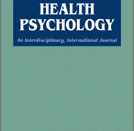"Nurses dispense comfort, compassion, and caring without even a prescription" (Val Saintsbury). This quote is true for patients all around the world that has experience the care and kindness of a good nurse. Usuimalo AhSoon Nua is a Licensed Practical Nurse (LPN) at the LBJ Hospital in Fagaalu for 32 years. I would say she knows something if not almost everything about being a nurse. Her job is to care for people who are sick, injured, convalescent, or disabled under the direction of physicians and registered nurses (RN).
Usuimalo AhSoon Nua care for patients in many ways. Often, she would provide bedside care. At times she would measure and record patients' vital signs such as height, weight, temperature, blood pressure, pulse, and respiration. She also prepares and gives injections and enemas, monitor catheters, dress wounds, and give alcohol rubs and massages. To help keep her patients comfortable, she assists with standing, walking, moving them in bed, personal hygiene, dressing and even bathing.
Sometimes she would even help feed patients who need help eating. With her experience as a Licensed Practical Nurse she also supervises nursing assistants and aids when her superior is not present.
As part of her job, she collects samples for testing, perform routine laboratory tests, and record food and fluid intake and output of her patients. Clean and monitor medical equipment, and sometimes even help physicians and registered nurses perform tests and procedures. She would also monitor her patients and report adverse reactions to medications or treatments. She gathers information's from patients, including their health history and how they are currently feeling. By doing so, she uses the information to complete insurance forms, pre-authorizations, and referrals, and sharing the information with RN's and doctors to help determines the best course of care for a patient. Mrs. Nua often teaches family members how to care for a relative or teach patients about good health habits.
Although nursing and psychology are two separate fields, they are still related to one another. In the nursing field, the focus is on helping individuals with their health and recovery. Psychology on the other hand is the study of mental processes and behavior. Nursing and psychology relate because both fields want to help people adequately recover from health problems, a nurse must often understand the behavior and emotional state of a patient. This is vital for a nurse who desires to help patients recover from diseases or disabilities quickly.
Psychologists and nurses both have the common goal of understanding the emotional and biological needs of their patients. Although nurses sometimes provide very basic care, they have the job of developing an individual's ability to become more independent. This is especially true in cases where a patient is recovering from some type of accident. One way that psychology enhances nursing is by helping a person change behaviors, such as their mental thought patterns. An optimistic nurse who brings comfort to patients has the ability to encourage positive thinking. Herbert Benson, a cardiologist and professor at Harvard Medical School, says that the brain's ability to affect the body has been scientifically proven. A positive attitude can boost the immune system and contribute to physical health and recovery (Jayson).
When the nursing field incorporates psychology it begins to resemble a field called biopsychology. Biopsychology attempts to understand behavior through biological theories. Nursing already has a biological base and when a nurse attempts to understand patients beyond a biological level, biopsychology begins to emerge. The expansion of fields like biopsychology continues to be a key part in nursing and nurse training (Current Directions in Biopsychology).
In the book "Psychology for the Profession of Nursing," Jeanne G. Gilbert acknowledges that the nurse ultimately develops a close personal relationship with patients. In order to develop a healthy relationship, it's vital that a nurse understand human emotional reactions, and psychology is the key to understand this fully. A nurse must recognize when a patient is angry, depressed, confused or afraid, and take the necessary steps to deal with these emotions so as not to aggravate a patient's health condition.
Psychology can enhance the nursing profession when it's properly applied. There are psychological theories and research that can prove to be useful to individuals in the nursing profession. Although nursing is largely based on biology, there are psychological and social elements to nursing. When nurses understand and embrace this idea, they become better at their profession.
Works CitedBenson, Herbert. Timeless Healing: The Power and Biology of Belief. N.p.: Simon & Schuster Adult Publishing Group, 1996. Print.
Current Directions in Biopsychology. Association for Psychological Science. N.p.: Allyn & Bacon, Inc., 2008. Print.
Gilbert, Jeanne G., and Robert D. Weitz. Psychology for the Profession of Nursing. New York: Ronald Press Co., 1949. Print.
Jayson, Sharon. "Power of a Super Attitude." USA Today. N.p., 12 Oct. 2004. Web. 16 Feb. 2010. .
Wagner, Kendra V. About.com Guide. N.p., n.d. Web. 16 Feb. 2010. .





